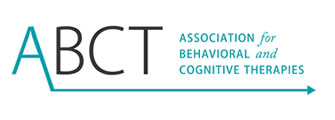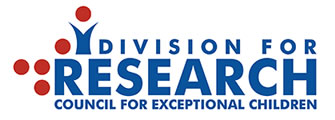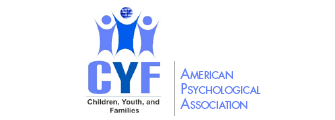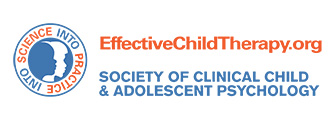
Remember that first time your baby got sick? Maybe you could hear her coughing through the monitor, or perhaps he wouldn’t stop crying. Maybe she felt hot when you hugged her, or you noticed a rash spreading across his skin.
It was a bit scary, right? What’s wrong? What do you do? Will he be ok?
When it happened to me with my first child, I found comfort at my computer. With just a few clicks, I was inundated with relevant information giving me possible diagnoses, home remedies, other symptoms to monitor, and explicit instructions for when to call my doctor.
Comfort also came on email and social media. Within seconds, friends across the globe were offering input, strategies, and solace that everything would be ok. And sure enough, it was.
But what if instead of that coughing, you heard persistent sobbing coming from your daughter’s room? Or what if your son will not stop counting, washing, or checking. What if you kept getting calls from your child’s teacher despite everything you have tried to get her to pay attention? Or rather than a rash, you find self-inflicted cuts on your daughter’s arms?
Now what do you do?
It’s shocking that in the 21st century trusted information for these conditions are not easier to come by. Sure, there are websites that will offer opinions, but the information is widely variable from webpage to webpage. And you can ask your friends for their advice, too. But most will be just as confused as you are. When it comes to mental health conditions among our children, it is much harder to find comfort. And nothing is worse than watching a child suffer and not knowing how to make them better.
Maybe it’s unfair to compare mental health conditions to medical disorders. After all, medicine has been around much longer than child psychiatry or clinical child psychology. And we have invested many billions more on the science of pediatric cancer, for instance, than on the mechanisms underlying child depression, or anxiety, or ADHD, or autism – or even all child mental health conditions combined. Frankly, it is far easier to predict the behavior of a cell than it is a young human being. But that’s not the only reason why the answers come less readily when we have questions about mental health.
Mental health just hasn’t been a high priority in our country, at least not when compared to medicine. Our government, and other associated regulatory bodies, have oversight over the number of medical professionals who are trained, what the curriculum entails, what treatments are considered ethical to administer, and what kind of approaches will be reimbursed by health insurance. It’s easier to find straight facts about medical treatment, because there is reasonable consensus about what works and what new pediatricians should do for the common problems they encounter in their offices.
That’s not the case for mental health, however. Anyone can train mental health professionals – it’s not very regulated at all. For-profit institutions, non-accredited training facilities, and even online “institutions” can all train mental health professionals who are able to get licensed to practice in the USA. And without much government funding or oversight to train the nation’s mental health workforce, it’s a bit of a free-for-all. Some train students to diagnose and treat mental health conditions using scientifically-proven techniques. But others don’t. And no one has stepped in to promote a general consensus on what professional standards should be.
Even within the fields of psychiatry, psychology, social work, and counseling, there has been little agreement on how to diagnose children’s mental health symptoms, what treatments to use, what may work, or even the kinds of treatments that are so unlikely to work that they are downright unethical to offer to families today.
So the job of making sense of it all has unfortunately fallen to parents who in their moment of fear for their child’s safety, happiness, and future, must navigate a mess of both good and bad information.
Here’s a few simple solutions to help you in those moments when your child is crying all the time, fearful, or out of control and you just want to know how to help.
First, remember that just like a few sniffles may not need immediate medical attention, not all psychological symptoms require treatment either. It’s those difficulties that seem to persist for more than a few days – maybe a week or two – and seem to have affected a child’s ability to function normally at school, at home, or with friends that need to be seen by a trained professional. It shouldn’t feel shameful to do so. It should be a shame not to. Many psychological conditions can be treated quickly and effectively just like medical illnesses can. You wouldn’t let your child cough for months without seeing a doctor. Why let them suffer emotionally when the path to feeling better can be just as easy to come by?
Second, when finding a trained professional, make sure that you have found someone who was trained at an accredited institution. Also, look for someone who was trained in what you need. Child psychiatrists predominantly have training in pharmacological treatments, while clinical child and adolescent psychologists have substantial training in talk therapies. Social workers and licensed professional counselors have training in psychotherapy as well. How do you find someone you can trust? Among psychologists, numerous directories are available (some free resources are findachildpsychologist.org and findcbt.org, for example), and as you may expect, those who are board certified (look for “ABPP” after their name) may be especially qualified to help.
Last, when meeting with a mental health provider, be sure to find out whether the approach they are using has been backed by science or not. It shouldn’t be your responsibility to ask this question – but sadly, it is. You should know your child’s diagnosis and how the provider arrived at that decision. If he/she did not rely on standardized approaches to do so, then it is OK to question their conclusions. You should also know how your provider thinks treatment will help, and whether they have proof that this treatment will work. Their “hunch” or experience is not enough. Just like you wouldn’t allow your pediatrician to give your child a pill without any scientific basis it may work (or that at least it would not harm them), don’t let your child’s mental health provider offer unproven psychological treatment either. A few resources are available to help you find out whether treatments are backed by science or not. Probably the easiest one to use is totally free at effectivechildtherapy.org – there you’ll find a constantly updated list of what works for each type of child mental health diagnosis, and what doesn’t. If it’s not been proven to work, why would you want it?
Proper citation link for this blog post:
Prinstein, M. (2016, August 17). Finally some straight answers on child and adolescent mental health! Retrieved from http://infoaboutkids.org/blog/finally-some-straight-answers-on-child-and-adolescent-mental-health/.
















